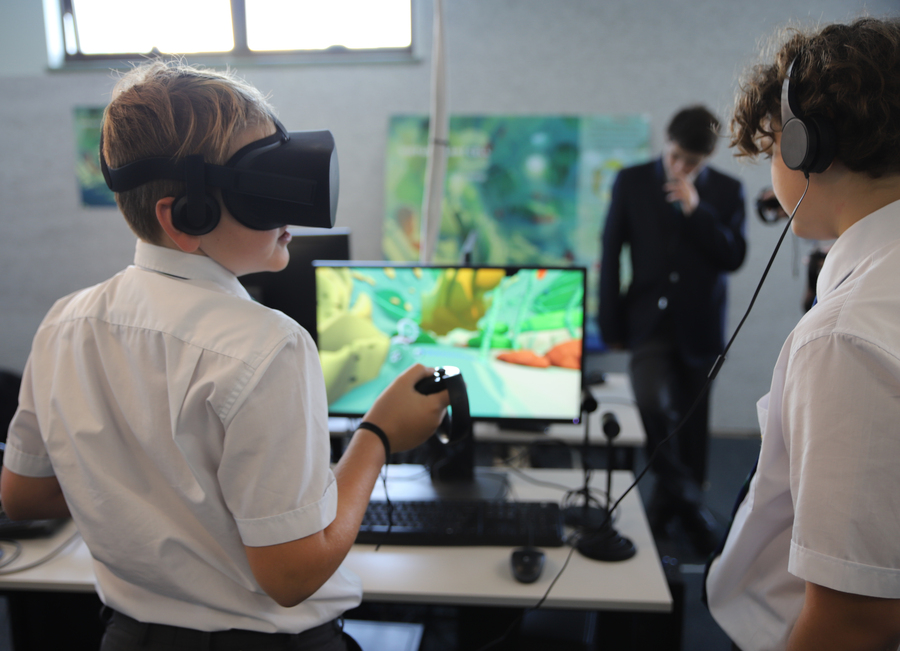Virtual Plant Cell (VPC) is being trialled with school students at Trinity College, taking the cutting-edge virtual reality technology into the classroom and providing a fun, interactive educational experience for them.
PEB Science Communications Officer Karina Price, who has led the project, said that new VR technology allowed for a learning experience inside “worlds” that could not be observed in reality and resulted in a truly unique way to engage students in science.
By including links to real-world agricultural challenges and highlighting local research endeavours to adapt plants for the future, VPC also helps students understand how science can be applied.
“We believe that virtual reality used in this way, and at this scale, in Australian classrooms is unprecedented,” Ms Price said.
“Changing the course of global food security starts with educating our own community and through the Virtual Plant Cell we can communicate vital plant research in a way that is really exciting, interesting and easy to understand.”
Ms Price said past challenges with teaching cell biology, particularly due to the microscopic size of cells, can be overcome by using virtual reality technology, which provides a visual, auditory and spatial learning environment.
“With Classroom VPC, we’re also building science understanding, helping students develop skills and inspiring career aspirations toward the critical areas of agriculture and our future food production,” Ms Price said.
Science teacher at Trinity College, Tim Blake said the technology was something he had been waiting to have in the classroom for years.
“It offers a great advantage for teaching harder concepts such as cell three dimensionality and is a whole new world of learning,” Mr Blake said.
“The excitement and engagement this has generated amongst the students is phenomenal.
“Students have indicated it has made them more interested in learning and it has helped them retain more information because they are engaged and having fun while learning at the same time.
VPC is also used to engage the public in plant science and will make appearances at National Science Week festivals around Australia this August.

